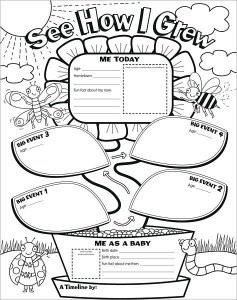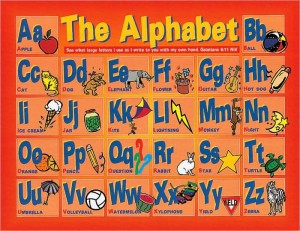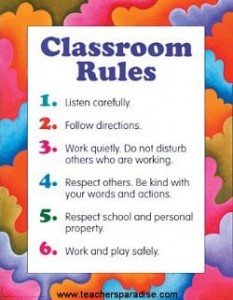If you are new to homeschooling or have questions before you get started, please check here. We have tried to answer most frequently asked questions here.
1. What is Homeschooling?
Homeschooling is where usually one parent takes responsibility of their child education. It is one of the most flexible and easy to adapt education system as it adapts to child’s skill and pace they can learn. That means learning classes from private vendors, community colleges, co-op schools, and at home. Everything we do in daily life can be learning experience, so education continues even after school hours.
2. What is not homeschooling?Myths about Homeschooling:
Some people consider that only poor people, lazy people do homeschooling and kids do not learn much at home. This is hardly the truth. There are many rich and famous people have done homeschooling in past and current time. Please check out famous homeschooler articles for current actors, musicians and other famous people who are homeschooling their kids right now.
Other popular myth is only Christians do homeschooling. While there are many Christian who do homeschooling, many homeschooler are various religion or not religious at all. Some are doctors, engineers, teachers, some are from constructions, janitors and so on. Homeschooler like you and me, normal human being who wants to be charge of their child’s education.
3. Come on, it is not legal is it?
Homeschooling is legal in 50 states of USA, Canada. Some other countries in Asia and Europe have varied legality for homeschoolers, some are more friendly then others. Every state and country have their laws, some are very basic to just let your current school district know about, some school also offer homeschool or independent study program that parent can do home. We are in process of putting data up for each 50 states and other countries, so watch this space.
4. What about Socialization? Will not child be lonely?
One of the major concern for new homeschooling family is lack of social aspect that traditional school may bring. It is also keeps from potential people from trying out homeschooling. However, homeschoolers get plenty social time with other children and adults when they have field trip, park days and classes being taken at vendor’s or at co-op. Sometimes, there are also sports, scouts and other social aspects that any other traditional school going kids do plus more. Kids can be part of soccer team, pen pal, art camps, piano and other music gathering along with educational part of school that will be sure to give plenty of social time to talk, learn and play together.
Many homeschooler kids do well with kids their own age along with adult conversation as they are part of mixed ages social gathering just like in real life.
5. Why people choose to homeschool?
Why would anyone want to homeschool when there are free public school available? Many parents or kids choose to homeschool for following reasons;
- Your child can learn things he or she is interested at his or her pace.
- If your child is gifted and ahead of learning, he or she might get bored learning things he or she already knows.
- If your child is behind in learning, he or she might be confused and feels frustrated as he or she may not understand concept being taught.
- If you child has a special need, traditional school teacher or kids may not be able to give right kind of attention he or she may need.
- Special need kids or gifted classes can be expensive, tough to find for some parents.
- If you child needs a special attention in some subject, traditional schooling may not be able to provide with large student to teacher ratio.
- With homeschooling, kids get to learn things they are interested while keeping up with what is required by law to study basic skills.
- Some parents like homeschooling as it strengthen the family bond between them and siblings.
- Learning can be part of real world for example, learning colors and shapes while doing grocery fruit shopping for early learning, learning math while paying money to cashier and so on.
- Flexibility to choose subjects and time. For example, if you child loves animals, he or she can spend 2 hours on animal science while visiting a petting zoo or watching birds, you are not bound by bell of class to stop when child is interested in more learning.
6. What to watch out for in Homeschooling?
Homeschooling is not easy way out, it requires proper planning and discipline to doing school work while living daily life of chores and other necessary things. Here are some of the things to consider when choosing to homeschool.
- One parent might have to give up income to stay home to teach kids. Loss of income can be huge deal for many families.
- If you are single parent, you can still do homeschooling while working part time or making other adjustment but it can be tough.
- Loss of private time; If you have small kids you will know this already, parents do not get much personal time to do things they enjoy. If you homeschool that means your kids and you will be mostly together, unless they are in some private class, so lack of time is something to think about.
- Sometimes, parents may not think they can teach their kids or have enough knowledge. That can bring issues to teaching.
- There is not much information and acceptance about homeschooling in world, specially some areas so one may feel isolated, and criticized about their choices. There are legal entity that supports homeschooling parents such as HSLDA.
- Convincing your spouse, friend or loved ones might be tough for some parent who wish to try homeschooling.
- You will still have to do all required learning by your state and you will have to keep records like school for your own record.
- House chores such as cooking, cleaning and doing other necessary things will have be planned with school class activities.
7. How much homeschooling costs?
Homeschooling can cost little to thousands of dollars per semester, it depends on how you teach and what resources you can use. Homeschooling does not have to be expensive though. There are free resources available to all tax payers regardless they choose public school or private, you can use them; They are public library for learning materials, educational videos, reading, phonics programs, free museum days, pbs children and educational shows, internet, you tube sites.
There are some costs for taking classes, buying boxed curriculum, paid field trip, sports, piano/music classes, art classes and so on. Some of the expense people have to do it, even for free public school. You can minimize the expenses by buying used curriculum, buying what you need and reusing them with other children and selling them once you are done to keep cost at reasonable budget.
8. If my Child is homeschooled, can he be qualified for good college later on?
This is one of the major concerned for any new potential homeschooler and it is valid question. To answer it in short term: Yes, your child will be able to go to good college or even IVY league college even if he or she is homeschooled. Matter of fact, some of the best college actually seek out homeschooler kids to recruit fot their college. According to stats, homeschooler kids tend to have higher ACT scores compared to traditional school counter parts, which helps. Universities like Stanford and Purdue have homeschoolers kids in engineering, sport scholarship as well. So, there are good chance for your homeschooler for admission in college and university to be admitted.
9. If my child is homeschooled, will he or she be able to fit in normal society?
While it is true, homeshcooling done in smaller group class or at home, many homeschooler do not have practice raising hand to ask question or stand in lines, in most cases homeschoolers fit in very well in society as well or sometimes better compared to other kids. How so you ask? Well, if you see in traditional school class, kids are approximately same age, (plus or minus 6 months), so kids in school do not get much practice to converse with other ages of kids or adults. How many time you work as an adult in office where you see people same age as you? Hardly never, so when you actually homeschool, one tends to be around, younger kids to older adults, just like in real life situation at life and in office, kids tend to be better prepared to handle world in most cases.
Traditional school has other issues such as bullying, guns and violence which is much less when one is homeschooling or one parent is there to intervene right away; At school, there are good teachers who look after kid’s benefit but typical high 20-40 students to 1 teacher ratio does not make it easy for them to watch all of them.
10. What if I am out of US and Canada, can I still homeschool?
Homeschooling has its roots in America and it is legal in all 50 states and Canada, other countries have followed the suit and many countries have small to big homeschooling community. You may want to search on net for your local area homeschooling program to be sure to find support community. You may want to look at look in our resource area as we are in process of updating and adding details that can be helpful to homeshcooler no matter where they live.
Further Reading:
Homeschooling Resouces
Homeschooling Articles
Homeschool Curriculum
Homeschool Reference Books for Parents














